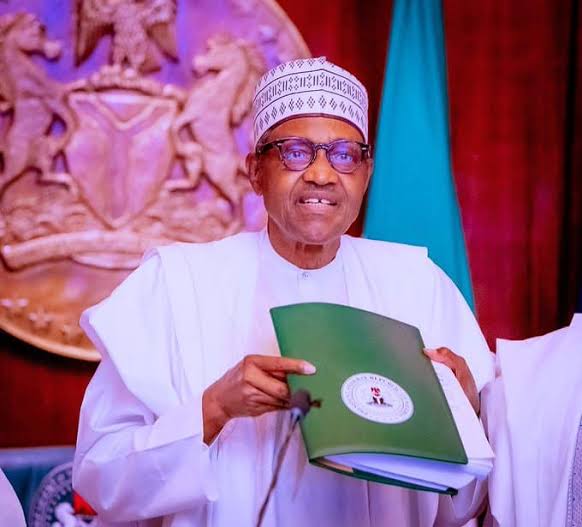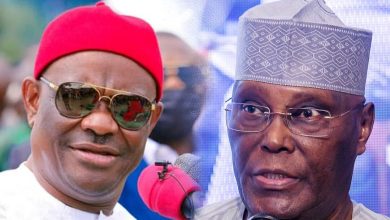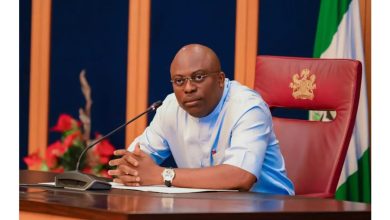President Muhammadu Buhari has finally signed the Electoral Act Amendment Bill into law.
The President assented to the bill at past midday on Friday at a brief ceremony held at the Council Chamber of the Aso Villa in Abuja.
The Vice President, Professor Yemi Osinbajo; President of the Senate, Ahmed Lawan, and Speaker of the House of Representatives, Femi Gbajabiamila, witnessed the signing of the bill.
This comes barely a week to the expiration of the window the President has to take a decision on the proposed legislation, as required by the Nigerian Constitution.
Having received the bill from the National Assembly on January 31, various stakeholders including political actors and civil society groups had awaited its signing into law by the Nigerian leader.
Amid an outcry over the delay in signing the bill into law, sources had indicated that President Buhari was billed to give his assent on Wednesday.
But the signing of the bill failed to take place as scheduled and was rescheduled to Friday, although sources said the President would honour the new date.
In his address, Buhari said before signing the bill, he received inputs from relevant Ministries, Departments and Agencies of government, after careful and thorough reviews of the bill and its implications for democratic processes.
He said it was gratifying to note that the reworked bill came with a great deal of improvement from the previous one, which he vetoed.
He said, “There are salient and praiseworthy provisions that could positively revolutionise elections in Nigeria through the introduction of new technological innovations. These innovations would guarantee the constitutional rights of citizens to vote and to do so effectively.
“The bill would also improve and engender clarity, effectiveness and transparency of the election process, as well as reduce to the barest minimum incidences of acrimony arising from dissatisfied candidates and political parties.
“These commendable efforts are in line with our policy to bequeath posterity and landmark legal framework that paves the way for a credible and sound electoral process that we would all be proud of.”
…President demands amendment to allow govt appointees’ participate in congress, convention
Meanwhile, the President expressed reservations about Section 84 (12) of the new law, which bars political appointees from voting or being voted for in political parties’ congresses and conventions.
He therefore demanded an immediate amendment of the bill for the purpose of deleting the section, which he said was unconstitutional.
He explained that the practical application of the section would subject serving political office holders to inhibitions and restrictions referred to under sections 40 and 42 of the 1999 Constitution as amended.
The section 84 (12) reads, “No political appointee at any level shall be a voting delegate or be voted for at the convention or congress of any political party for the purpose of the nomination of candidates for any election.”
The Special Adviser to the President on Media and Publicity, Mr Femi Adesina, revealed these in a statement titled ‘Electoral Act: We’re bequeathing a lasting legacy with new election laws, says President Buhari’.
The statement quoted him as saying, “Distinguished Senators and Honourable Members of the National Assembly, from the review it is my perspective that the substance of the bill is both reformative and progressive. I am making this bold declaration because I foresee the great potential of the bill.
“Worthy of note include the democratic efficacy of the bill with particular reference to sections 3, 9(2), 34, 41, 47, 84(9), (10) and (11) among others.
“This, however, cannot be said about one provision as contained in the proposed bill, whose provision constitutes a fundamental defect, as it is in conflict with extant constitutional provisions.
“Section 84 (12) constitutes a disenfranchisement of serving political office holders from voting or being voted for at conventions or congresses of any political party, for the purpose of the nomination of candidates for any election in cases where it holds earlier than 30 days to the national election.”
The President stressed that the clause introduced qualification and disqualification criteria that ultra vires the constitution by way of importing blanket restriction and disqualification to serving political office holders of which they are constitutionally accorded protection.
He added, “It is imperative to note that the only constitutional expectation placed on serving political office holders that qualify, by extension as public officers within the context of the Constitution, are resignation, withdrawal or retirement at least 30 days before the date of the election.
“Hence, it will be stretching things beyond the constitutional limit to import extraneous restriction into the constitution on account of the practical application of section 84(12) of the bill where political parties’ conventions and congresses were to hold earlier than 30 days to the election.
“Arising from the foregoing, with particular regards to the benefits of the bill, industry, time, resources and energy committed in its passage, I hereby assent to the bill and request the National Assembly to consider immediate amendments that will bring the bill in tune with constitutionality by way of deleting section 84(12) accordingly.’’
Buhari commended the lawmakers for their commitment and dedication to improving the previous Electoral Bill 2021.










